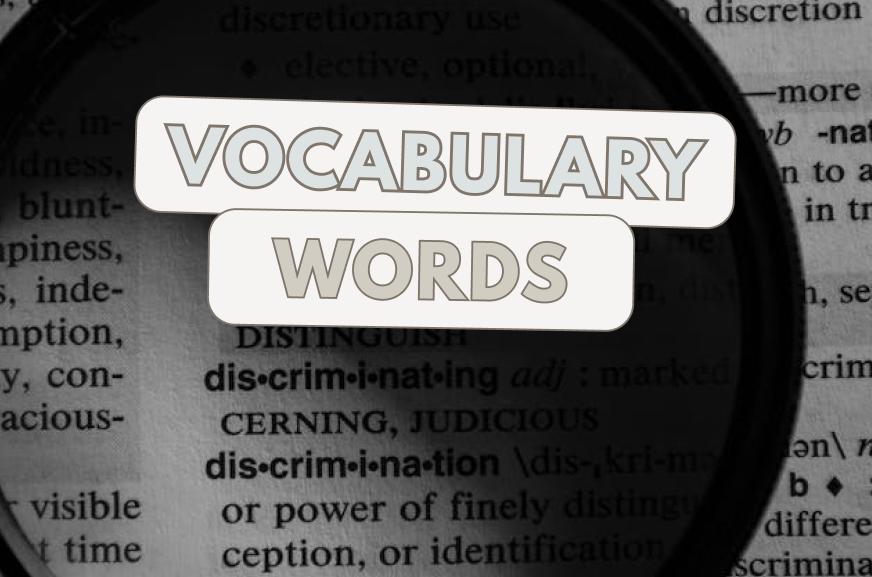UPDATE: If you want even more help with LSAT vocabulary than the words below (and don’t want to have to memorize hundreds and hundreds of words), check out the LSAT Vocabulary Builder: Words You Need to Know.
You probably know the meanings of most words in the Logical Reasoning section.
However, if you know what all the words mean, the arguments will be much easier to understand.
I’ve compiled a list of common, but difficult, vocabulary words just from glancing through 4-5 sections of Logical Reasoning (and throwing in some words that you absolutely must know), so this list is obviously not intended to be comprehensive.
Because the LSAT is not intended to be a vocabulary test, you probably know most of the below words already.
However, take a quick glance through this list and make sure you know them all.
Don’t spend a great deal of time focusing on vocabulary in your preparation. However, when you see a word you don’t understand, look it up. Just as the same concepts and types of arguments appear on multiple exams, the same words and phrases also appear on multiple exams.
Keep in mind that the LSAT sometimes uses one of a word’s less-common meanings
For example:
The LSAT often uses the word “phenomenon” to mean “event” rather than “something unusual.”
The LSAT often uses the word “advance” to mean “to promote an argument” rather than “to literally move something forward.”
Words directly related to arguments
Antecedent
Assertion
Assumption
Claim
Consequent
Contention
Correlation
Counterexample
Flaw
Inference
Necessary
Paradox
Premise
Principle
Proposition
Rebuttal
Subsidiary
Subsequent
Sufficient
Verbs
Accumulate
Advance
Advocate
Afford
Aggravate
Attribute
Betray
Circumvent
Compel
Conform
Constitute
Derive
Endorse
Ensure
Entail
Eschew
Equivocate
Guarantee
Imply
Impose
Indicate
Hold
Hypothesize
Justify
Oblige
Posit
Preclude
Predispose
Presuppose
Prevaricate
Qualify
Refute
Sustain
Undermine
Verify
Adverbs
Correspondingly
Intrinsically
Invariably
Manifestly
Purportedly
Solely
Strenuously
Adjectives
Aggregate
Altruistic
Ambiguous
Ample
Categorical
Coherent / Incoherent
Compatible / Incompatible
Confirming / Disconfirming
Consistent / Inconsistent
Cryptic
Crucial
Eccentric
Extant
Foreseeable
Imperturbable
Improbable
Indigenous
Indispensable
Mundane
Principal
Primary
Prominent
Questionable
Sedentary
Temporal
Unequivocal
Unwarranted
Unique
Valid / Invalid
Viable
Vulnerable (to criticism)
Nouns
Anomaly
Condition
Contingency
Extent
Generalization
Hearsay
Impediment
Impetus
Inflation
Irony
Jurisprudence
Liability
Phenomenon
Placebo
Proportion
Pundit
Skeptic
Trial
Either or / Neither nor
Contrast
Principal vs. Principle
Extant vs. Extent
***
Also see: LSAT Logic Games Vocabulary Words and Phrases
Photo by solbronumberone / CC BY-SA 2.0

